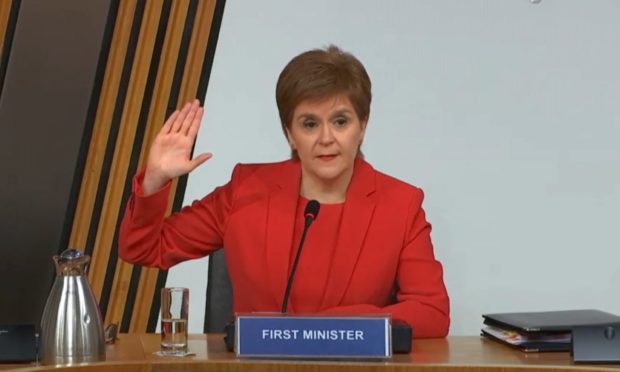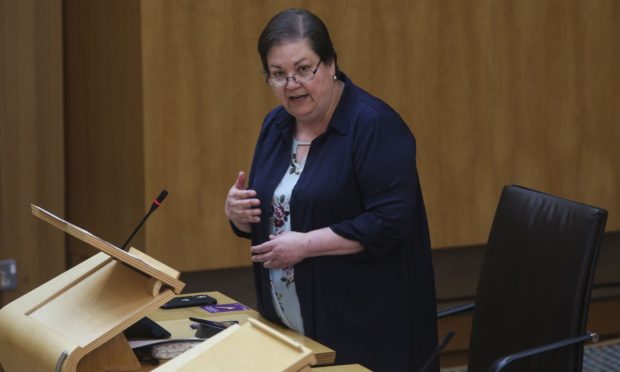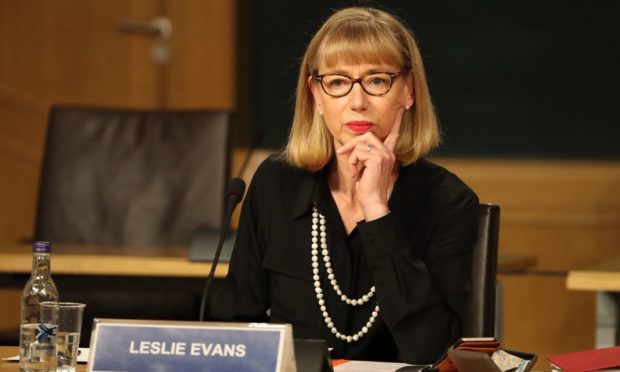Nicola Sturgeon has set out a blueprint to rebuild “trust” in the wake of the inquiries into the handling of harassment allegations against Alex Salmond.
The first minister said the shake-up outlined in the Scottish Government’s plan would aim to “embed a culture where bullying and harassment is not tolerated”.
Proposals include creating an independent procedure to oversee formal complaints about former and current ministers’ behaviour, the development of a “propriety and ethics team” to ensure the highest standards in the civil service, and taking new “action” to improve the way the government “use, store and retrieve information and records”.
The new complaints process is to be established by the end of the year, and Ms Sturgeon is also considering changes to the ministerial code.
The plan is part of the government’s response to reports from Laura Dunlop QC, James Hamilton and the Scottish Parliament’s committee on harassment complaints, which unveiled their findings earlier this year after high-profile investigations.

Ms Sturgeon said: “At the heart of the three reports are the complaints from two women who spoke of unacceptable behaviour in the course of performing their duties as civil servants. These complaints could not be ignored.
“Everyone should be able to expect a respectful and safe working environment. This is both a legal right and core to the values of the organisation.
Our goal is to embed a culture where bullying and harassment is not tolerated and where there is trust in how matters will be handled if things go wrong.”
“Our goal is to embed a culture where bullying and harassment is not tolerated and where there is trust in how matters will be handled if things go wrong.
“This work is informed by engagement with our recognised trade unions and by staff, including those with lived experiences of bullying and harassment.”
“We are determined to learn from and apply the insights from these reports to build a culture in government where concerns are addressed early, and where all those involved with a complaint have confidence and can engage constructively and fairly in the process.”
A Holyrood committee was established to examine the Scottish Government’s botched handling of harassment allegations against Mr Salmond after the former SNP leader received a £512,000 pay-out in the wake of a Court of Session civil ruling that the way the government dealt with the complaints was “unlawful” and “tainted by apparent bias”.
In March, the MSPs ruled that two women who complained about Mr Salmond were badly let down with “serious flaws” and “catastrophic” decisions by the government.
A separate probe by Mr Hamilton, Ireland’s former director of public prosecutions, found that Ms Sturgeon did not breach the ministerial code of conduct in relation to the inquiry.
Mr Salmond was cleared of 13 charges, including sexual assault, indecent assault and attempted rape, following a trial last year.
Responding to the government’s plan, Scottish Labour deputy leader Jackie Baillie said: “Throughout the work of the committee it became apparent that the Scottish Government’s processes for dealing with harassment complaints were simply not fit for purpose.
“A great many people, particularly women, have already been failed by the government’s flawed procedures and for that they should be ashamed.
“Today’s reports and the recommendations contained within them are welcome. It is right that the government learns from its mistakes and that an external procedure to deal with complaints against current and former ministers is put in place.”
It is right that the government learns from its mistakes and that an external procedure to deal with complaints against current and former ministers is put in place.”
However, Ms Baillie raised concerns about the involvement of Scottish Government permanent secretary Leslie Evans in creating the new policy.
“Given the several failings on the part of the permanent secretary, as revealed by the committee’s work, it is simply wrong for her to have a leading role in the creation of the new process,” she said.
“Indeed, the committee concluded that the permanent secretary should consider her position.”
In its response to the three inquiry reports, the government said that a new “ministerial induction programme” had been developed for ministers appointed following the Holyrood election last month.
It also said a permanent appointment to the new post of “director general corporate” had taken place to “strengthen support to the permanent secretary”.
The government said it was aiming to establish the new independent process for investigation and adjudication of complaints about ministers or former ministers by the end of 2021.
By September this year, it added that it expected to “set out more detail of specific actions” following an information management review, and to bring the “propriety and ethics functions” under a single point of leadership.
Ms Sturgeon will also will give consideration to the publication of a revised Scottish ministerial code.



